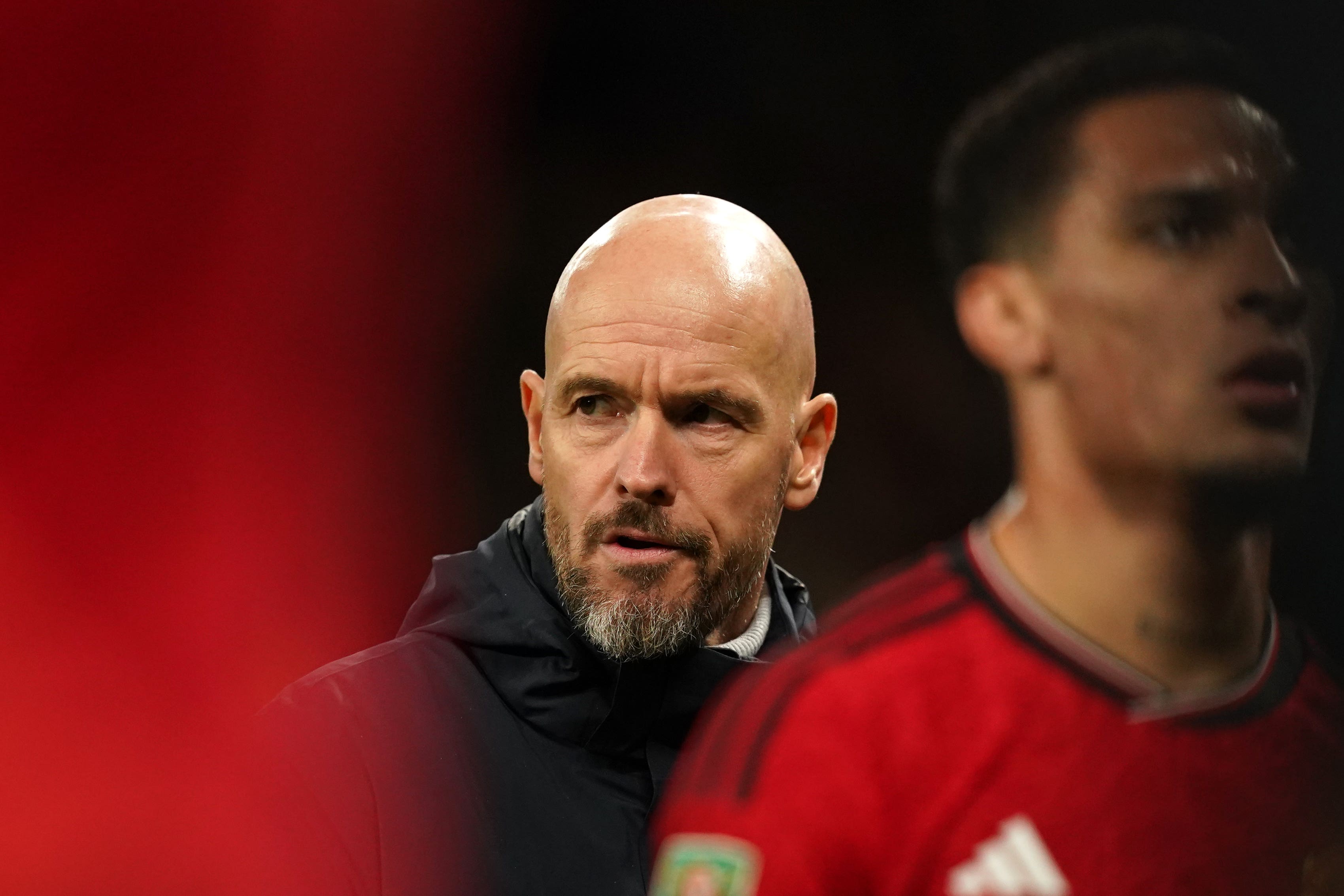Manchester United stand by Erik ten Hag – but has he already passed the point of no return?
Changes behind the scenes with the arrival of Sir Jim Ratcliffe as a minority owner could help Ten Hag, but time is running out to turn around fortunes on the pitch

Your support helps us to tell the story
From reproductive rights to climate change to Big Tech, The Independent is on the ground when the story is developing. Whether it's investigating the financials of Elon Musk's pro-Trump PAC or producing our latest documentary, 'The A Word', which shines a light on the American women fighting for reproductive rights, we know how important it is to parse out the facts from the messaging.
At such a critical moment in US history, we need reporters on the ground. Your donation allows us to keep sending journalists to speak to both sides of the story.
The Independent is trusted by Americans across the entire political spectrum. And unlike many other quality news outlets, we choose not to lock Americans out of our reporting and analysis with paywalls. We believe quality journalism should be available to everyone, paid for by those who can afford it.
Your support makes all the difference.Manchester United still want to persevere with Erik ten Hag but the club are now at a grimly familiar point where results may take precedence over aims to persist with the manager. There is already a view from some within Old Trafford that the Dutch coach has that same beaten air that Ole Gunnar Solskjaer and David Moyes had in the final weeks of their tenures.
The big question is whether Ten Hag can change results and performances. The big problem is that there has been no sign of how. United have gone beyond regression now.
Some of the previous concerns have returned with force. This is precisely why a manager with the right personality, and with an experience of big clubs, is needed at Old Trafford – at least in these circumstances. There is barely any story in football like a United crisis, which plays out amid loud noise from outside, and it is why barely any coach makes it through.
Should they have appointed a manager whose most prominent role had been at a modern Ajax, that Champions League semi-final notwithstanding, bringing him to a club without an equivalent of Ajax’s leadership structure? It matters because it prepares a coach for crises like this.
The growing worry with Ten Hag is that he doesn't know how to navigate his way out of this mess. The response to any setback so far has been more discipline, “more stick and no carrot”. While that did work at the start, it gradually grates. It has been one of a few factors breaking that crucial connection between Ten Hag and his squad. He did have it for long periods last season, and things were looking up. The great danger is that once that bond goes, it goes, especially at a club like this. It can be impossible to retrieve.
Such commentary will inevitably see the focus return to the players, and the make-up of the squad. That is an issue that long precedes Ten Hag, and is a much bigger problem. United so struggle to overhaul squads that some players hang around for years. That inherently prevents full buy-in when a new manager arrives.
One player who came in under Ten Hag was immediately struck by how “weak” the dressing room seemed, that United lacked big characters. There is even a growing belief that the 7-0 defeat to Liverpool last season just broke something, especially with how it came so soon after the Carabao Cup final victory over Newcastle United.
Wednesday night’s dismal defeat to the same club in the same competition emphasises how it has all come around again.

Another word frequently used in the last decade has come up again: “Toxic”.
Rather than sealing Ten Hag’s fate, however, it is just as possible these factors are what saves him. There is an awareness that all of these problems go beyond whoever the manager is. There is also the reality that, finally, there might be wider change behind the scenes.
Talks are proceeding well for Sir Jim Ratcliffe to buy a 25 per cent stake in the club and the negotiations involve Ineos being given a remit to restructure the football side of the club. Ineos had previously been interested in Ten Hag for Ineos-owned OGC Nice, so Ratcliffe’s arrival could be in the manager’s favour. A better structure to the football hierarchy could also bring much better coaching out of Ten Hag.
But it doesn’t help that so many of the manager’s requested big-money signings have been such flops so far. Up to £300m of spending has effectively had no positive influence on the team. And while Casemiro was a superb influence last season, some of the criticisms about paying so much for a player this far into his career are still fair.
And that’s where the hinge may be. United’s midfield looks the centre of so much, especially in how more-intensive sides overrun them. It is a reason they can’t control games, and we’re seeing nothing like the idea that Ten Hag was supposed to instil.
Fulham will fancy it on Saturday when they meet at Craven Cottage. As will FC Copenhagen in the Champions League on Wednesday. As has pretty much every side this season.
That’s how events can overtake grand plans. If a team keeps losing, even the best football structures see that a manager has to lose his job.
Join our commenting forum
Join thought-provoking conversations, follow other Independent readers and see their replies
Comments